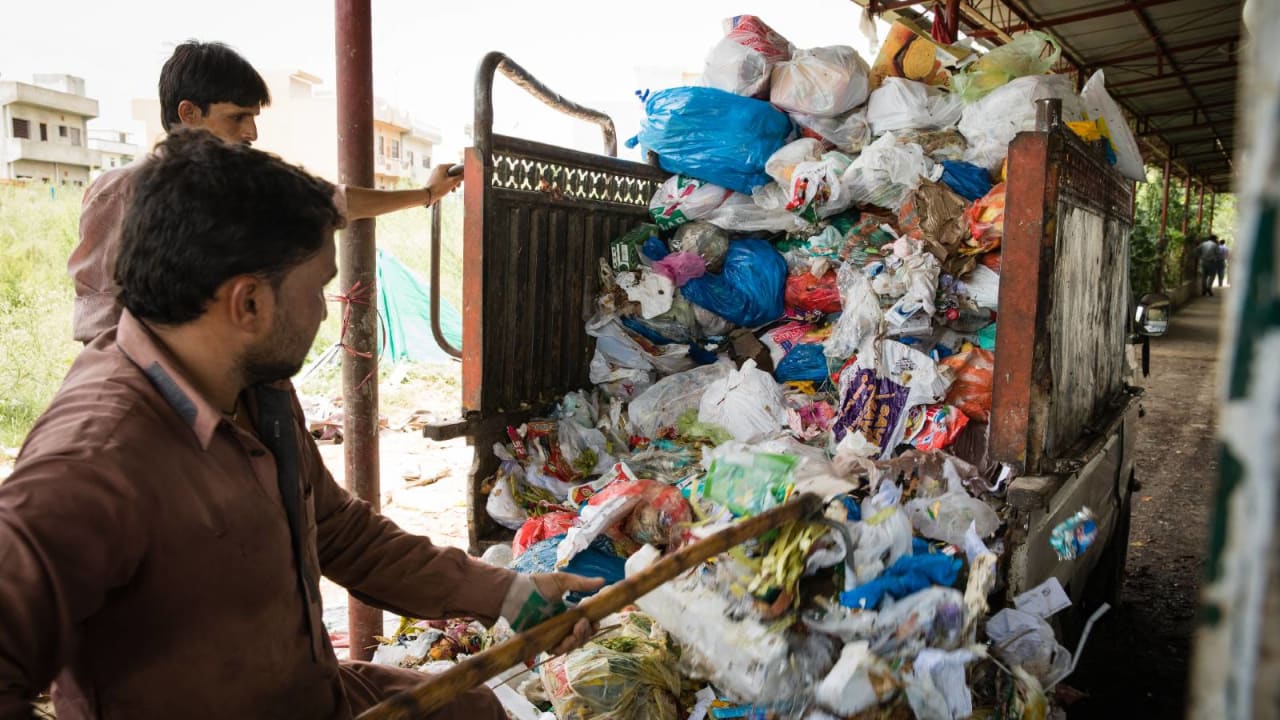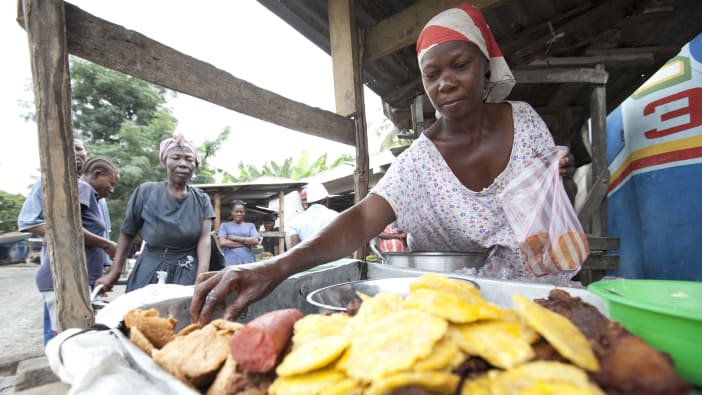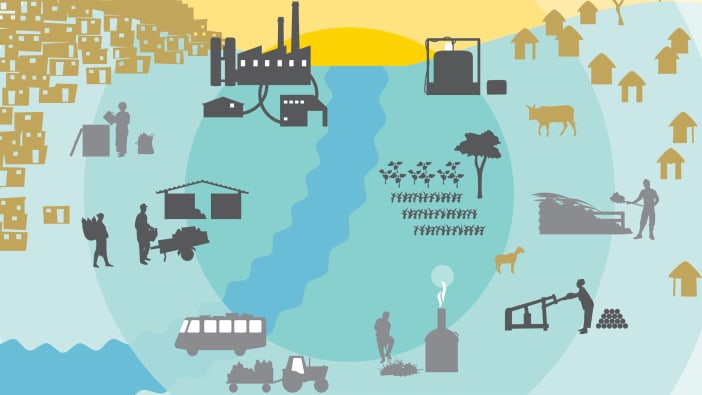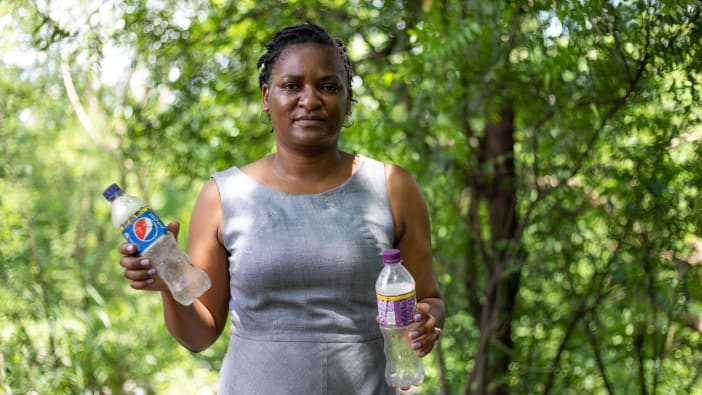300 million tonnes of plastic becomes waste each year worldwide – that’s enough to fill over 8,000 Olympic-sized swimming pools every single day. And, in low- and middle-income countries, nearly two-thirds of plastic waste ends up being openly burned, dumped or polluting oceans, having a disastrous impact on the health of people and the environment.
We believe that reducing plastic production is a top priority, but that we must also take action to manage plastic waste at every level – safe collections and recycling are ways of doing so.
Although several new approaches for recovering value from plastic waste have emerged in recent years, little has been done to assess and compare the safety of these approaches from a human health and environmental standpoint. These approaches fit roughly into three categories:
- mechanical,
- chemical,
- and energy recovery.
Mechanical approaches shred plastic waste into smaller pieces that are melted, and turned into pellets for new products like bottles, clothing, road surfaces or bricks. This is the approach you probably think of when you imagine recycling.
Chemical approaches use heat and chemicals or catalysts to purify plastic polymers or transform them into other materials and fuel.
Energy recovery approaches burn plastics, to make electricity and heat for homes. In some cases, plastic is heated much like the chemical approach, to produce fuels for cars or ships.
In 2021, Tearfund commissioned an independent study on some of the main approaches for processing plastic packaging waste in low- and middle-income countries. Each was assessed based on:
- the impact on people’s health – whether that’s workers at plastic recovery facilities or those living in communities nearby,
- the impact on the environment, and
- the technological maturity – meaning, how long it’s been tried and tested in the real world.
This analysis was used to assess the risk of operating below safety standards for each approach in countries that lack effective, well resourced and independent environmental regulation.
First, let’s look at chemical approaches.
On the one hand, some people hope that chemical approaches might help us solve plastic pollution one day. On the other hand, because the aim of some chemical approaches is to recover the fossil fuels that were used to create the plastics, it's likely they will produce high carbon emissions when burned - which contribute to the climate crisis – as well as other emissions that harm human health. In line with pledges made by political leaders at COP26, we should be moving away from any technology that increases carbon emissions. The report found that because they haven’t reached commercial maturity, there just isn’t enough information to tell what the impact on public health and the environment will be, and therefore they are not appropriate for use in countries which lack independent, well resourced environmental regulation.
Similarly, energy recovery approaches, though more technologically mature than chemical ones, also produce high carbon emissions. They too risk being operated below safety standards in countries that lack independent, well-resourced environmental regulation, and therefore they are not appropriate for use in those countries.
'So, what about mechanical approaches? Is the news any better?'
Well, the report found that mechanical approaches are likely to result in fewer harmful emissions, and are therefore much better for both public and environmental health. Their technologies have been tried and tested - which means we know they are appropriate for use in contexts where it may be harder to ensure reliable safety procedures.
So, Tearfund urges governments, companies, and activists to advocate for the use of mechanical approaches for recovering value from plastic waste in countries which lack independent, well resourced environmental regulation. These approaches are better for public health, better for protecting the environment, and more technologically mature.








